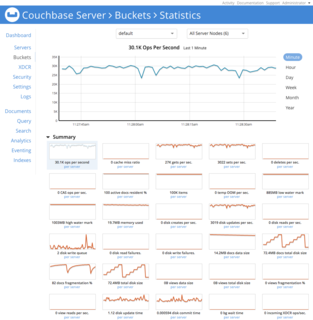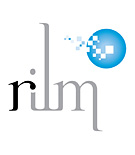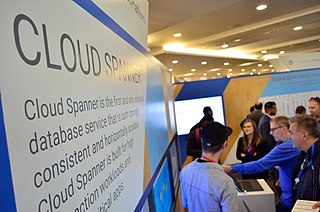 W
WA database is an organized collection of data, generally stored and accessed electronically from a computer system. Where databases are more complex they are often developed using formal design and modeling techniques.
 W
WBig data is a field that treats ways to analyze, systematically extract information from, or otherwise deal with data sets that are too large or complex to be dealt with by traditional data-processing application software. Data with many cases (rows) offer greater statistical power, while data with higher complexity may lead to a higher false discovery rate. Big data challenges include capturing data, data storage, data analysis, search, sharing, transfer, visualization, querying, updating, information privacy and data source. Big data was originally associated with three key concepts: volume, variety, and velocity. When we handle big data, we may not sample but simply observe and track what happens. Therefore, big data often includes data with sizes that exceed the capacity of traditional software to process within an acceptable time and value.
 W
WCockroach Labs is a computer software company that develops commercial database management systems. It is best known for CockroachDB, which has been compared to Google Spanner. CockroachDB is a project that is designed to store copies of data in multiple locations in order to deliver speedy access. It is described as a scalable, consistently-replicated, transactional datastore.
 W
WCouchbase Server, originally known as Membase, is an open-source, distributed multi-model NoSQL document-oriented database software package optimized for interactive applications. These applications may serve many concurrent users by creating, storing, retrieving, aggregating, manipulating and presenting data. In support of these kinds of application needs, Couchbase Server is designed to provide easy-to-scale key-value or JSON document access with low latency and high sustained throughput. It is designed to be clustered from a single machine to very large-scale deployments spanning many machines.
 W
WCrateDB is a distributed SQL database management system that integrates a fully searchable document-oriented data store. It is open-source, written in Java, based on a shared-nothing architecture, and is designed for high scalability and includes components from Presto, Lucene, Elasticsearch and Netty.
 W
WDatabase: The Journal of Biological Databases and Curation is an online peer-reviewed open access scientific journal that covers research on databases and biocuration. The journal was established in 2009 with David Landsman as the editor-in-chief. DATABASE is the official journal of the International Society for Biocuration. The journal has published the proceedings of the International Biocuration Conferences since 2009.
 W
WA database machines or back end processor is a computer or special hardware that stores and retrieves data from a database. It is specially designed for database access and is coupled to the main (front-end) computer(s) by a high-speed channel. The database machine is tightly coupled to the main CPU, whereas the database server is loosely coupled via the network. Database machines can transfer large packets of data to the mainframe using hundreds to thousands of microprocessors with database software. The front end processor receives the data and displays it. The back end processor on the other hand analyzes and stores the data from the front end processor. Back end processors result in higher performance, increasing host main memory, increasing database recovery and security, and decrease of cost to manufacture. The database machine contrasts with a database server, which is a computer in a local area network that holds a database.
 W
WDatabase System Concepts, by Abraham Silberschatz, Henry F. Korth, and S. Sudarshan is a best-selling textbook on database systems.
 W
WReferential integrity is a property of data stating that all its references are valid. In the context of relational databases, it requires that if a value of one attribute (column) of a relation (table) references a value of another attribute, then the referenced value must exist.
 W
WDigital Scriptorium (DS) is a non-profit, tax-exempt consortium of American libraries with collections of pre-modern manuscripts, or manuscripts made in the tradition of books before printing. The DS database represents these manuscript collections in a web-based union catalog for teaching and scholarly research in medieval and Renaissance studies. It provides access to illuminated and textual manuscripts through online cataloging records, supported by high resolution digital images, retrievable by various topic searches. The DS database is an open access resource that enables users to study rare and valuable materials of academic, research, and public libraries. It makes available collections that are often restricted from public access and includes not only famous masterpieces of book illumination but also understudied manuscripts that have been previously overlooked for publication or study.
 W
WThe GS1 GEPIR is a distributed database that contains basic information on over 1,000,000 companies in over 100 countries. The database can be searched by GTIN code, container Code (SSCC), location number (GLN), and the company name. A SOAP webservice exists.
 W
WIDMS, short for Integrated Database Management System, is primarily a network model (CODASYL) database management system for mainframes. It was first developed at B.F. Goodrich and later marketed by Cullinane Database Systems. Since 1989 the product has been owned by Computer Associates, who renamed it Advantage CA-IDMS and later simply to CA IDMS.
 W
WThe International Road Traffic and Accident Database (IRTAD) collects and aggregates international data on road crashes. It thereby provides an empirical basis for international comparisons and more effective road safety policies. The IRTAD database is maintained by the International Transport Forum (ITF) via its permanent working group on road safety, known as the IRTAD Group.
 W
WThe Jordan Antiquities Database and Information System (JADIS) was a computer database of antiquities in Jordan, the first of its kind in the Arab world. It was established by the Department of Antiquities in 1990, in cooperation with the American Center for Oriental Research in Amman and sponsored by the United States Agency for International Development. JADIS was in use until 2002, when it was superseded by a new system, MEGA-J. Over 10,841 antiquities were registered in the database.
 W
WA key–value database, or key–value store, is a data storage paradigm designed for storing, retrieving, and managing associative arrays, and a data structure more commonly known today as a dictionary or hash table. Dictionaries contain a collection of objects, or records, which in turn have many different fields within them, each containing data. These records are stored and retrieved using a key that uniquely identifies the record, and is used to find the data within the database.
 W
WThe laboratory mouse has been instrumental in investigating the genetics of human disease, including cancer, for over 110 years. The laboratory mouse has physiology and genetic characteristics very similar to humans providing powerful models for investigation of the genetic characteristics of disease.
 W
WThe Open Database License (ODbL) is a copyleft license agreement intended to allow users to freely share, modify, and use a database while maintaining this same freedom for others.
 W
WRépertoire International de Littérature Musicale, commonly known by its acronym RILM, is a nonprofit organization that offers digital collections and advanced tools for locating research on all topics related to music. Its mission is “to make this knowledge accessible to research and performance communities worldwide….to include the music scholarship of all countries, in all languages, and across all disciplinary and cultural boundaries, thereby fostering research in the arts, humanities, sciences, and social sciences.” Central to RILM's work and mission is the international bibliography of scholarship relating to all facets of music research.
 W
WSpanner is a NewSQL database developed by Google. Spanner is a globally distributed database service and storage solution. It provides features such as global transactions, strongly consistent reads, and automatic multi-site replication and failover.
 W
WTermcap is a software library and database used on Unix-like computers. It enables programs to use display computer terminals in a device-independent manner, which greatly simplifies the process of writing portable text mode applications. Bill Joy wrote the first termcap library in 1978 for the Berkeley Unix operating system; it has since been ported to most Unix and Unix-like environments, even Multics. Joy's design was reportedly influenced by the design of the terminal data store in the earlier Incompatible Timesharing System.
 W
WVoyages: The Trans-Atlantic Slave Trade Database is a database run by researchers at Emory University which aims to present all documentary material pertaining to the transatlantic slave trade. It is a sister project to African Origins.